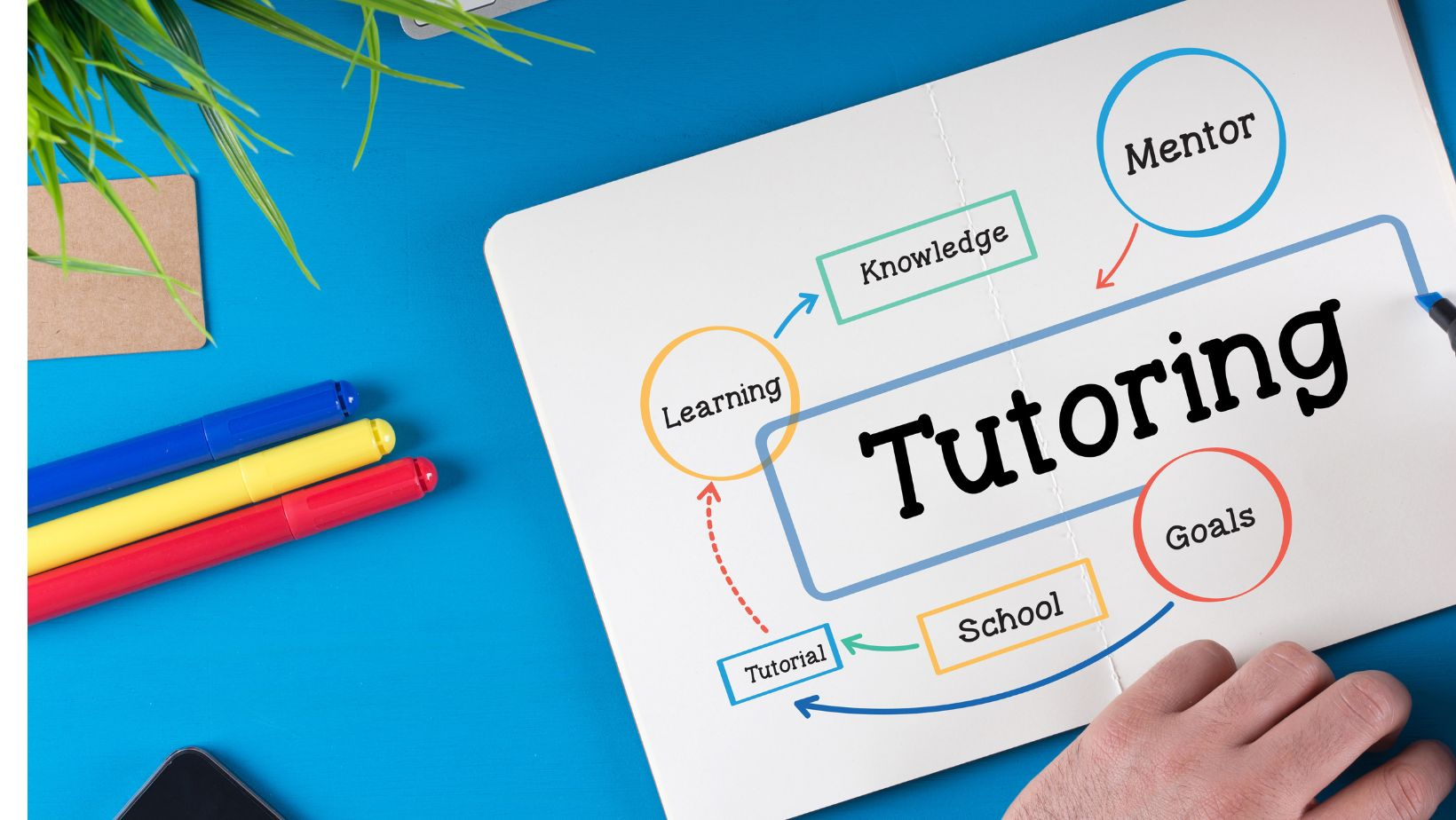Parents send their children to school to learn things they can use later in life. Apart from learning, one of the reasons parents send their children to school is to get a competitive edge for future employment or career.
Good grades are often seen as a good predictor of future success. It can open doors for university scholarships and even better employment status in the future.
According to the National Association of Colleges and Employers (NACE), more than 55% of employers screen applicants by GPA.
Helping your child achieve good grades at school is one of the many responsibilities of parents. We’ve put together some helpful tips for you if you would like to help your children improve their academic performance.
Impact of Parental Involvement and Engagement in Childrens' Good Grades

Although parental involvement in a child's learning or academic development is widely accepted, some parents or guardians are unaware of its importance and extent. For some parents, it is not clear what constitutes parental involvement in academics, much more its impact on their children’s learning and grades.
In general, parental involvement in education refers to the use of resources and investment on a child’s schooling by parents or family members .
The positive effect of parental involvement on children's education is no longer a question. Many researches and studies have proven the positive relationship of parental participation in children's education.
Parental involvement in children’s studies gives students a sense of confidence. Motivation from their parents enables a child to attain higher self-esteem, which can translate to a higher academic performance of a student. This helps make it possible for a child to achieve good grades in school.
Furthermore, parental intervention in the academic formation of their children relates to the lower dropout and truancy rates among students. More time spent in school means more time for children to learn and earn better grades.
How to Be More Involved: Parent-School Partnership

Parental intervention or assistance in a child’s education greatly influences the outcome of a child’s academic performance. A study has shown that students with higher academic achievements or better grades have parents who are highly involved in their studies.
These results support the crucial role parents play in their children's education. Apart from academic institutions molding the intellectual prowess of students, parents can also contribute to the academic formation of their children. Here are some ways parents can be more involved in their children's education.
Maintain Open Communication With Teachers
There is a necessity for communication between parents and their children's teachers. Since parents know their children best, it would be beneficial to communicate to teachers what can stimulate or bore their children.
This can help teachers tailor their teaching methods, making it easier for children to learn or achieve good grades in school.
Encouraging and Supporting Children
Parents' encouragement when it comes to their children's academics is vital. Children whose parents show great interest and support for their studies have developed a positive outlook towards their school conduct and motivation.
Tutoring Them or Hiring Tutors
Parents personally tutor or hire a tutor to help their children strengthen subject comprehension and boost confidence. Tutoring provides a better avenue for children to learn without competing with other students in the classroom. With the help of a tutor, a customized approach to learning is possible.
Hiring a tutor for children can be advantageous for parents since they can perform other significant tasks at home. Similarly, tutors are highly skilled and experienced in handling the academic needs of children.
Being Involved Is Not Enough, Engagement Is Needed For
To help your children reach their full potential, parents should have a proactive approach to supporting their children's academic formation. Here are some things parents must do to make sure that their children score better grades.
Attending Parent-Teacher Conferences
Parents can be more proactive with their children's education by attending parent-teacher conferences or organizations. Conferences or organizations serve as an avenue for teachers and parents to adequately communicate and address children's specific academic needs.
Look After Them
Being engaged in your children's education does not necessarily mean always directly involving yourself in your children's academic formation. Simply making sure that your child gets enough sleep at night can be valuable to your children's education. This simple gesture can have a significant impact on your children's education.
According to the Sleep Foundation, a good night's sleep can help improve your children's school performance. Good quality sleep can help your children concentrate on their lessons and remember things well. This can help them achieve good grades or improve their academic performance.
Giving Children Nutritious Meals
Similar to quality sleep, food also affects the academic performance of students. Accordingly, access to healthy foods affects the academic achievements of students. For example, children who skip breakfast showcased decreased cognitive performance.
It is a must for parents to keep watch over their children's nutrition. Parents should see to it that their children are consuming nutritious meals. Poor nutrition can lead to children not achieving good grades at school or even developing behavioral and social problems while learning.
Key To Success

Achieving good grades at school is essential for students' academic success and later on in life. Good grades can influence the future career of children. Good grades serve as a testament to children's academic excellence, making them attractive candidates for high-paying jobs.
For children to get good grades, parents should be involved with their education or academic formation. Children who receive unwavering support and encouragement from their parents are more likely to succeed in their intellectual building and later on in their careers.
To obtain better grades at school, parents should maintain a proactive approach towards their children's education. It may include constant communication with teachers, ensuring a healthy lifestyle, tutoring, and even simply looking after them.
Overall, parents should serve as role models to their children and empower them to continue their educational journey.
Frequently Asked Questions (FAQs)
How important is parent involvement in a child's education?
Parent involvement is essential to a child's education. Parents who are involved in their children's education can help make sure that their children have the support they need to succeed. For example, parents who attend parent-teacher conferences or help their children with their homework can make a big difference in their children's academic success.
How does family involvement affect children's education?
Family involvement can affect children's education in a number of positive ways. For example, family involvement can help improve communication between parents and children, provide support for children's academic formation, and promote a healthy lifestyle for children. Parents who are involved can encourage family involvement by attending parent-teacher conferences, helping their children with homework, attending school programs, or volunteering at their child's school. Additionally, having family support and taking an active role in student learning can help with improving your child's social skills.
What are important school events parents should attend?
There are a number of important school events that parents should attend throughout the school year. Parent-teacher conferences, for example, provide an opportunity for parents to communicate with their child's teachers and learn about their child's progress in school. Additionally, school programs and extracurricular activities give parents the chance to see their children in action and support their interests and pursuits. Furthermore, volunteering at your child's school can show your child that you value their education and care about their success. At the end of the day, parent involvement is key to a child's academic success. By staying involved and supportive, parents can make sure that their children have everything they need to succeed in school and in life.
How can school staff engage parents to stay involved?
There are a number of ways that school staff can engage parents to stay involved. For example, school staff can reach out to parents through parent-teacher conferences, school programs, or school based activities. Additionally, school staff can encourage parents to volunteer at their child's school or participate in school events. Furthermore, school staff can provide resources and information to parents about how they can support their child's education at home. Moreover, schools can create family involvement programs that could help with family engagement, academic achievement, homework completion, higher grades, and better student outcomes. Ultimately, parent involvement is key to a child's academic success. By engaging parents and involving them in their child's education, school staff can help ensure that children have the support they need to succeed.
What can I do enhance my children's development?
There are a number of things parents can do to enhance their children's development. For example, parents can ensure that their children have a healthy lifestyle by providing nutritious meals and encouraging physical activity. Additionally, parents can help their children develop social skills by providing opportunities for social interaction and modeling appropriate social behavior. Furthermore, parents can help their children develop academically by assisting with homework, reading together, and visiting the library. Parents should also have a relationship with the child's teacher, attend parent teacher meetings, and make sure their children attend school regularly. Ultimately, parents play a vital role in their children's development. By taking an active interest in their children's lives and supporting their development, parents can help ensure that their children grow up to be healthy, happy, and successful.